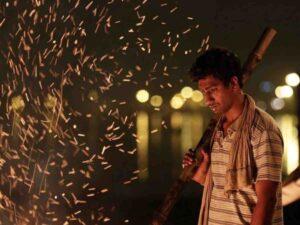(This article was updated on June 13, 2025) From Maqbool (2003) to Masaan (2015), these are some of the best Hindi movies on YouTube.
At some point, every film lover hits the wall. The watchlists run dry, the big platforms feel stale, the recommendations start to repeat themselves. And then, often by accident, you remember YouTube. A place we once turned to for music videos and odd clips now holds a sprawling, uncurated film library—one where rare classics, forgotten gems, and recent festival films coexist in unlikely corners.
There’s a certain pleasure in this kind of film-hunting: no algorithm, no curated banner, just the stray discovery—sometimes a studio upload, sometimes an archival print, sometimes a generous cinephile sharing a subtitled copy of a film otherwise lost to time. If you’ve combed through Netflix and Prime, or never subscribed to begin with, YouTube is worth revisiting. What follows is a selection—not exhaustive, but considered—of some of the best Hindi films currently streaming there (as of June 13, 2025), free and ready to watch.
Full disclosure: I’m new to Hindi films. These recommendations reflect a beginner’s enthusiasm—and no small amount of wonder. A few felt a touch melodramatic to me (cue Arth), but I’m learning to view them in the context of when they were made.
A quick plug while we’re here—our YouTube channel is full of more movie recommendations.
Best Hindi Movies on YouTube
17. Pinjar (2003)
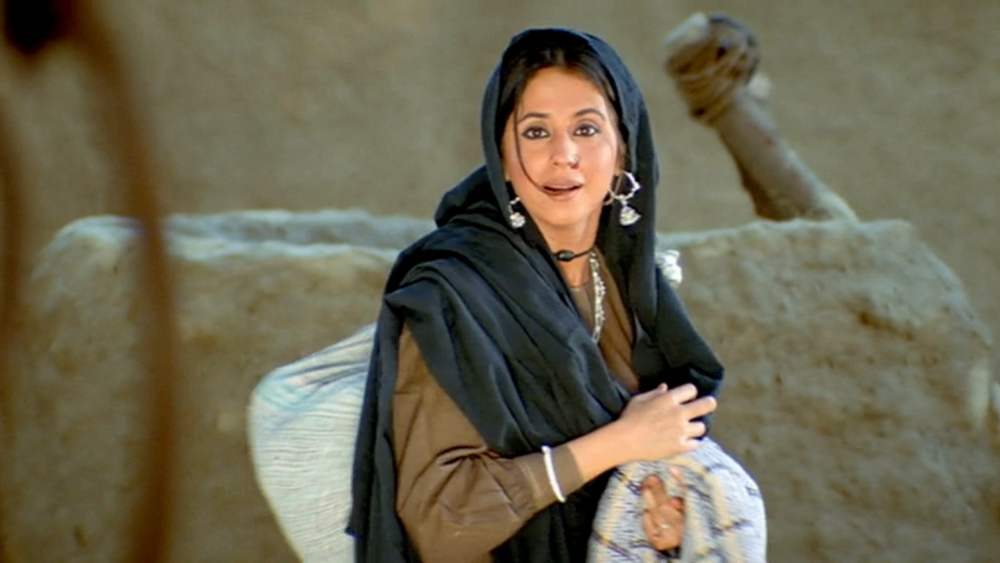
Adapted from Amrita Pritam’s novel, Pinjar looks unflinchingly into the human psyche amid the upheaval of the Indo-Pak Partition. Chandraprakash Dwivedi stages the history with a sure hand, but it’s the raw, deeply felt human moments that leave their mark. Love, loss, resilience — familiar words, until Pinjar makes you live them. Urmila Matondkar, in a performance quietly devastating, anchors this haunting, painfully beautiful film.
READ: 13 New Hindi Movies & TV Shows We’re Excited About in 2024
16. Shree 420 (1955)
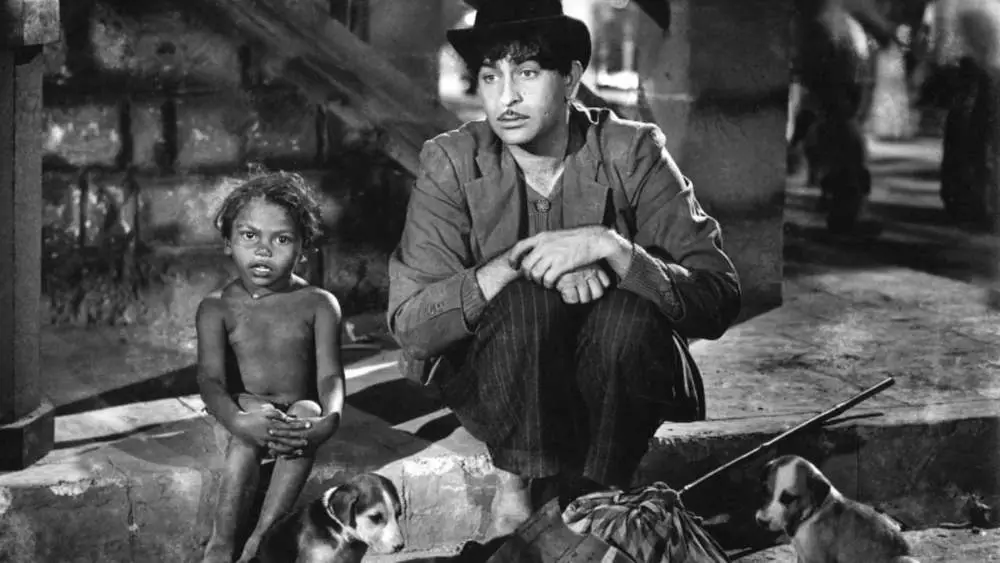
Raj Kapoor channels a Chaplin-esque tramp, hitchhiking from small-town India to the unforgiving sprawl of Bombay. There, he confronts the hypocrisies of a city shaped by early post-Independence idealism and creeping capitalism. Beneath its playful surface, the film captures a country in flux—Nehruvian socialism rubbing against street-level survival. But it’s Kapoor’s stylized direction that elevates Shree 420: the imagery is iconic, the tunes indelible. Kapoor and Nargis, both luminous, inhabit their characters’ dreams and disappointments with aching clarity.
15. Jaane Bhi Do Yaaro (1983)
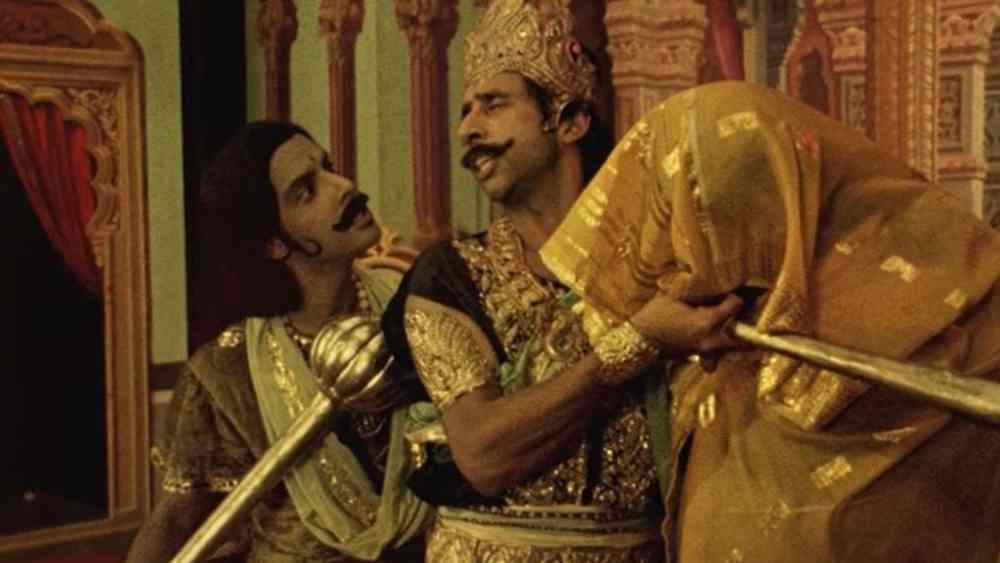
A biting satire, Jaane Bhi Do Yaaro holds up a bleakly comic mirror to a society riddled with corruption. That it remains one of the highest-rated Indian films is no surprise; Kundan Shah’s debut won him the Indira Gandhi Award for Best First Film. For anyone familiar with the inner workings of Indian systems, the film’s unabashed portrayal of rot hits close to home. Its dark humor cuts deep, exposing uncomfortable truths even as it plays with the absurd.
14. Fire (1996)
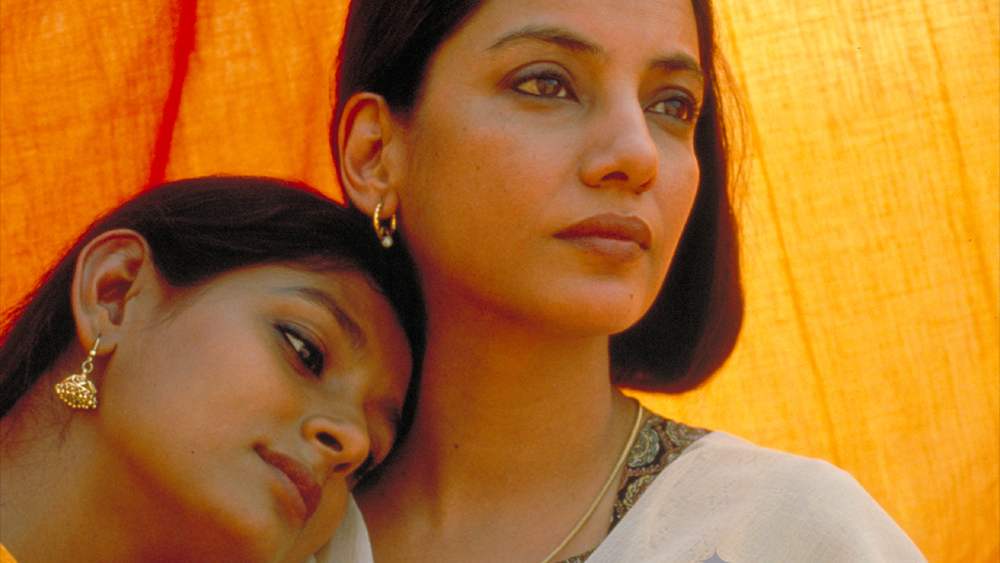
Deepa Mehta’s Fire remains a landmark—less for its craft than for the cultural fault lines it exposed. A tale of two women seeking connection in a suffocating patriarchal household, the film was both celebrated and vilified on release. Its politics are clear-eyed, its melodrama less so. Some scenes, where restraint might have served better, felt didactic. Yet Fire resonates in how it renders loneliness, the ache of unlived lives, and the fragile solace of forbidden intimacy. Nandita Das and Shabana Azmi carry the film with wonderful performances that transcend the film’s occasional heavy hand.
13. Arth (1982)
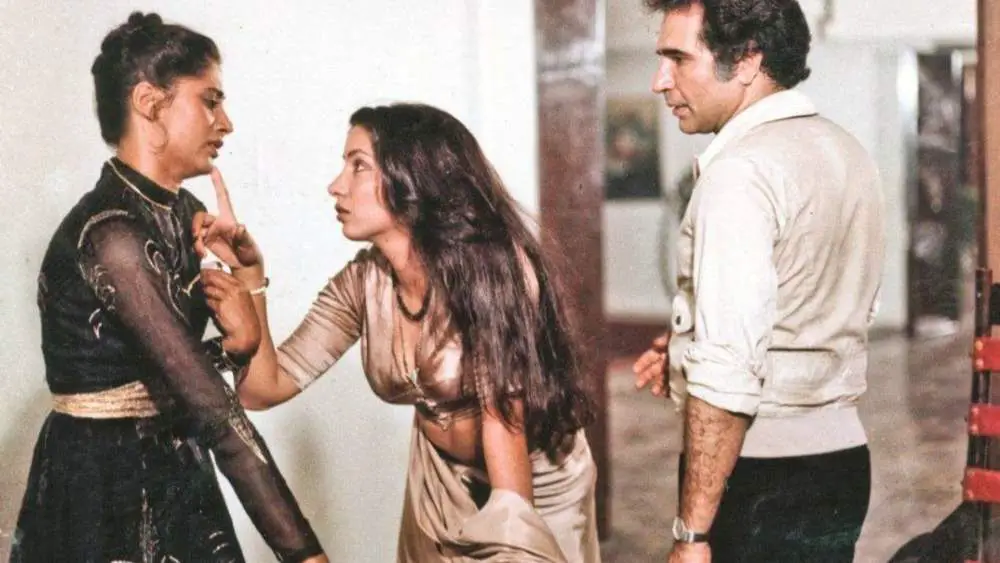
“Arth dug into my own wounds, my life burns,” Mahesh Bhatt said about his masterstroke of a film, in an interview with Filmfare. Bhatt infuses his film with questions around marriage, love, relationships seldom addressed in Indian society. He renders an old story with a refreshing perspective. The filmmaker treats the compelling characters with precision while crafting the narrative with a rare sense of balance. The picturisation of Tum Itna Jo Muskura Raho Ho is sure to break you. Arth won Shabana Azmi a National Award for Best Actress.
12. Gulaal (2009)
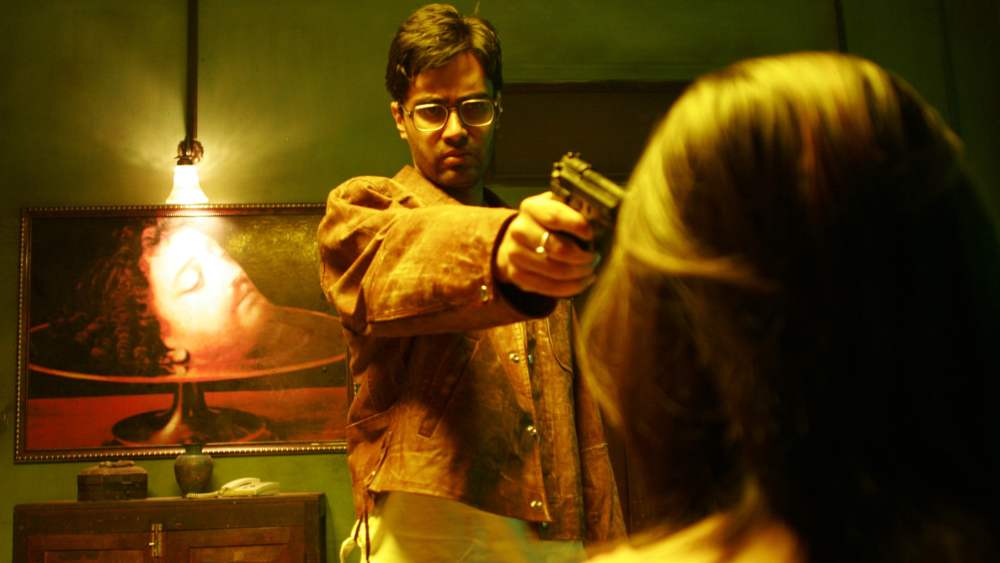
While some films are a journey inwards, others are a cerebral experience. Writer Raj Singh Chaudhary’s Gulaal blends both, embedding its complex themes of love, war, betrayal, greed with a rustic duality. Kashyap weaves all these threads into a taut, thrilling, edge-of-the-seat story. Smart writing coupled with compelling performances makes this socio-political drama a must watch and one of Kashyap’s finest. Piyush Mishra’s music lends depth to the narrative.
11. Sadgati (1981)
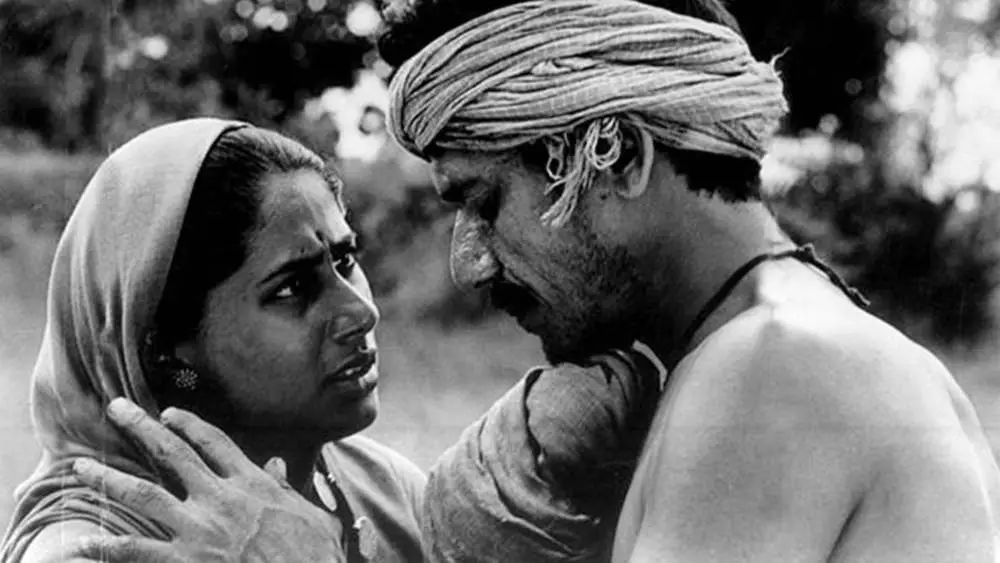
Adapted from Munshi Premchand’s short story, Satyajit Ray’s Sadgati lays bare the brutal weight of caste. A stark, unflinching portrait of systemic oppression, the film refuses comfort. From its first frames, the outcome feels inevitable—society has already failed its most vulnerable. Om Puri and Smita Patil inhabit their roles with searing authenticity. Ray’s touch is exacting: the artistry never softens the horror, only heightens its clarity. Sadgati is not an easy watch, nor should it be. It remains one of Indian cinema’s most devastating indictments of entrenched injustice.
10. Shahid (2013)
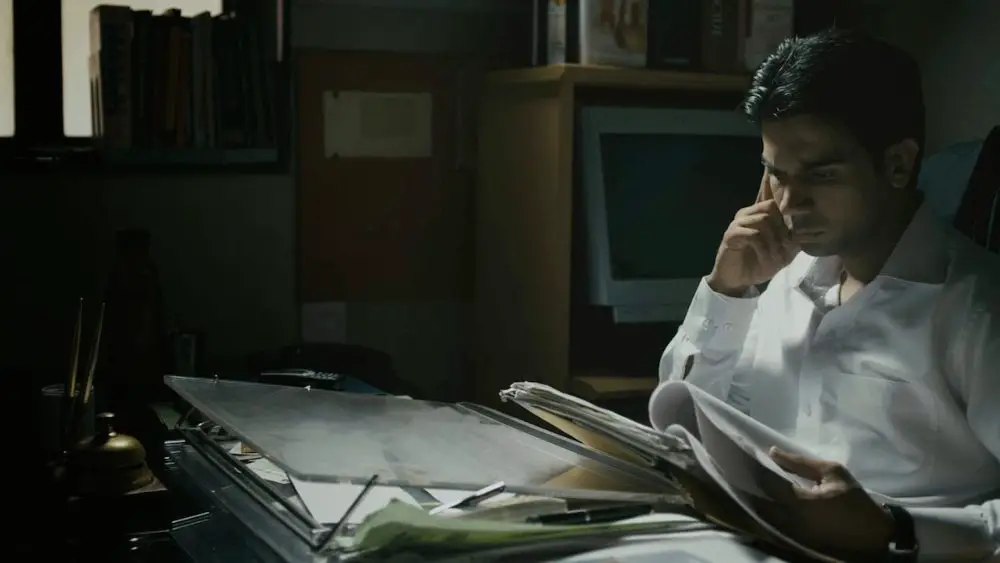
Hansal Mehta’s Shahid, a biopic of lawyer Shahid Azmi, navigates fraught terrain with admirable restraint. The film avoids both romanticization and courtroom theatrics, favoring a lean, documentary-like approach that honors its subject’s hard truths. Shot in part with a handheld camera, the film retains an urgent, unvarnished texture, grounding the narrative in lived experience rather than myth. What lingers is not just Azmi’s courage, but the conviction with which Shahid itself is made—a rare example of Indian cinema engaging with political reality without flinching.
9. Sparsh (1982)
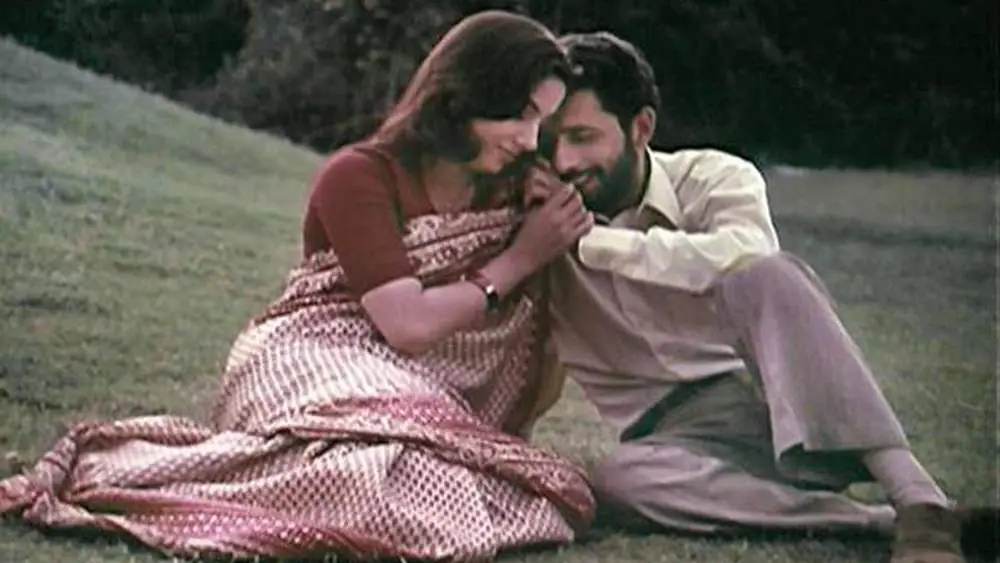
Sai Paranjpye’s Sparsh is a rare Indian film that treats disability with honesty. It moves away from the usual image of the disabled as helpless or tragic, and instead builds a story around empathy and dignity. Naseeruddin Shah and Shabana Azmi bring quiet realism to Aniruddh and Kavita’s story, letting the film’s strength lie in its truth.
8. Bhuvan Shome (1969)
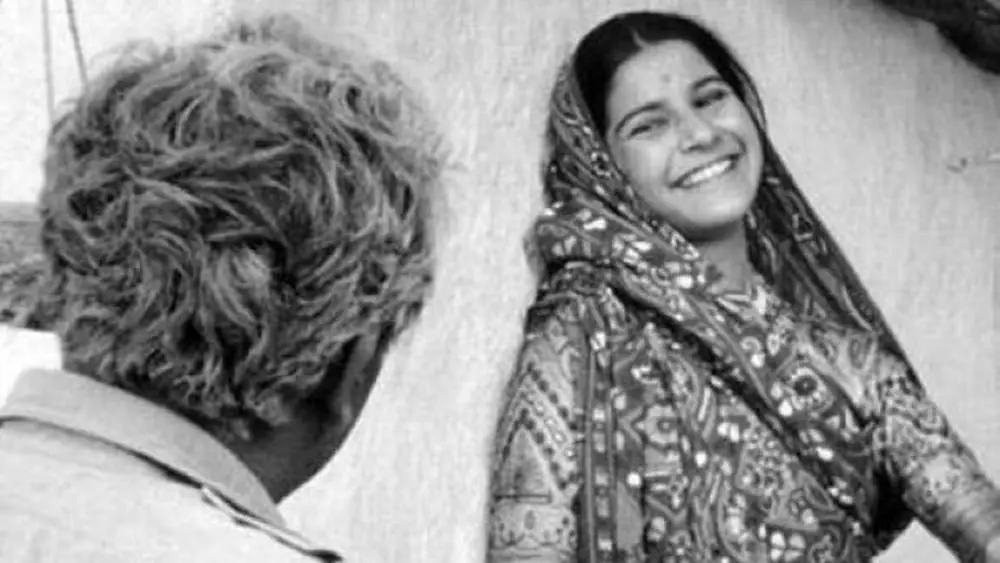
One of the earliest films to belong to India’s arthouse cinema, Mrinal Sen’s Bhuvan Shome adapts a story by Balai Chand Mukhopadhyay. Following a lonely bureaucrat, the film offers a sharp commentary on the rural-urban divide. Sen’s documentary-like style keeps the narrative fluid and spare, tracing Bhuvan’s inner and outer journey. With performances from Utpal Dutt, Suhasini Mulay, and a young Amitabh Bachchan, Bhuvan Shome remains a timeless classic—recognized with National Awards for Best Feature Film, Best Director, and Best Actor.
7. Aakrosh (1980)
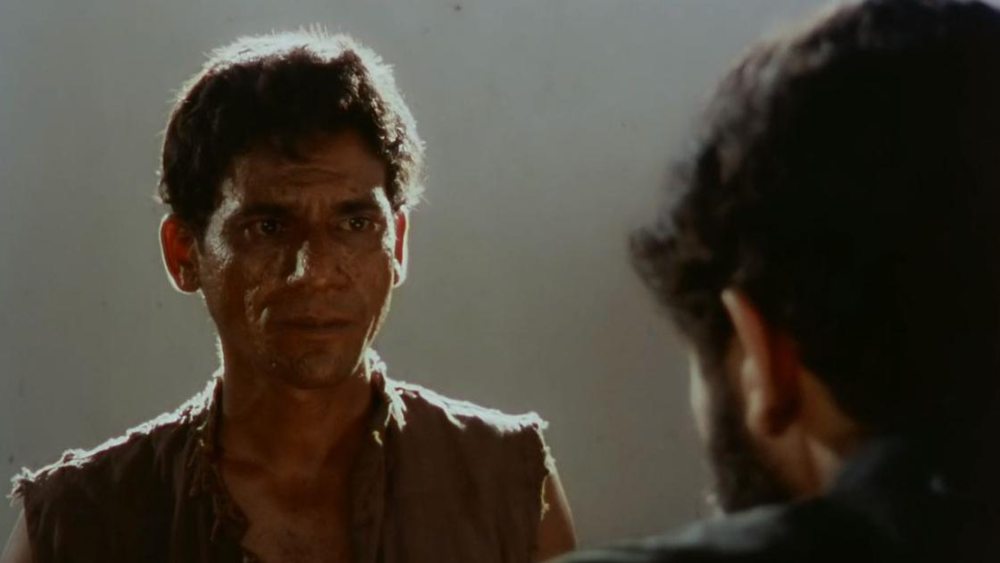
Govind Nihalani’s poignant directorial debut is painfully relevant to this day. Aakrosh shines a light on the dynamics of the oppression of Adivasis. It is a social commentary as well as a crime thriller. As a middle-class lawyer investigates the cause of a woman’s death, he also uncovers the dark, gritty reality about the life of Adivasis. Om Puri is haunting as Lahanya Bhiku, with a performance built on subtle shifts and silences. The film offers an unflinching, uncompromising depiction of a grim reality with no attempt to soothe or sugar-coat.
6. Tamas (1988)
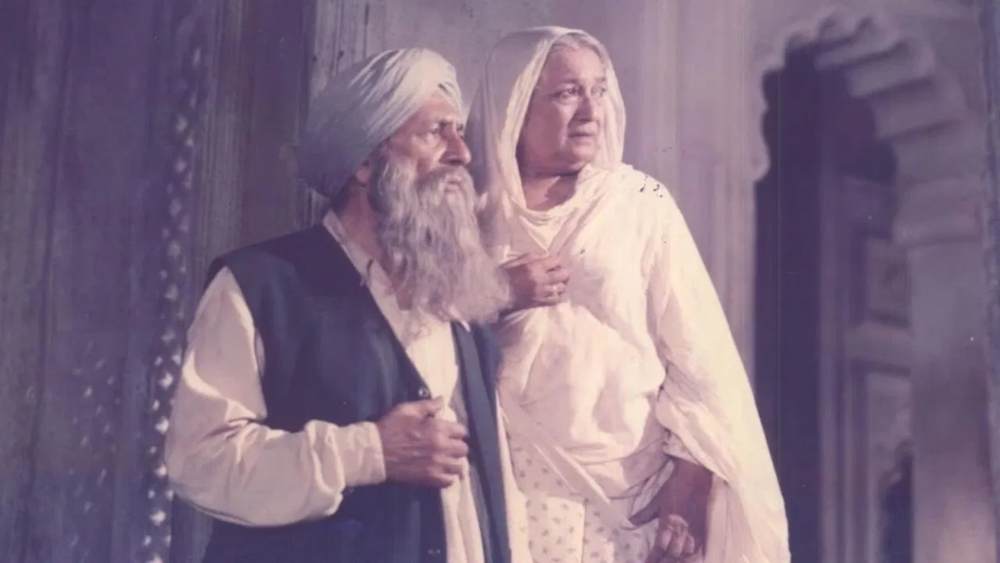
Nihalani’s gut-wrenching period piece was adapted from Bhisham Sahni’s eponymous novel. Tamas is an unforgettable saga about the horrors of the partition of India-Pakistan. It is a brutally honest, unbiased depiction of the bloodshed, violence, and dehumanisation that the partition left in its wake. An unfiltered take on communal conflict, Tamas landed in legal controversy at the time of release. It paints a searing picture of the cost of freedom and the plight of displacement.
5. Maqbool (2003)
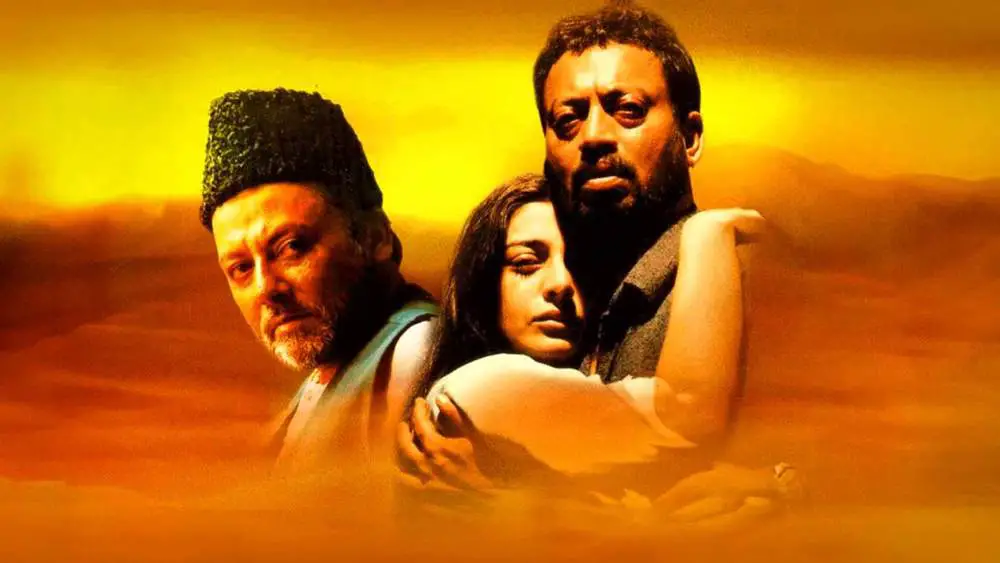
Vishal Bhardwaj’s Maqbool is a bold, unfettered reimagining of Macbeth. Shakespeare’s play is recast within the Indian underworld, yet its moral core remains intact. The film feels both grounded and mythic, transcending genre to explore the fractures of human nature. The characters, at once Shakespearean and wholly original, drive the narrative with force. Bhardwaj’s direction and editing are precise, and the performances deeply resonant. The complex interplay of hunger for power and personal relationships elevates the film to a philosophical masterpiece.
4. Ardh Satya (1983)
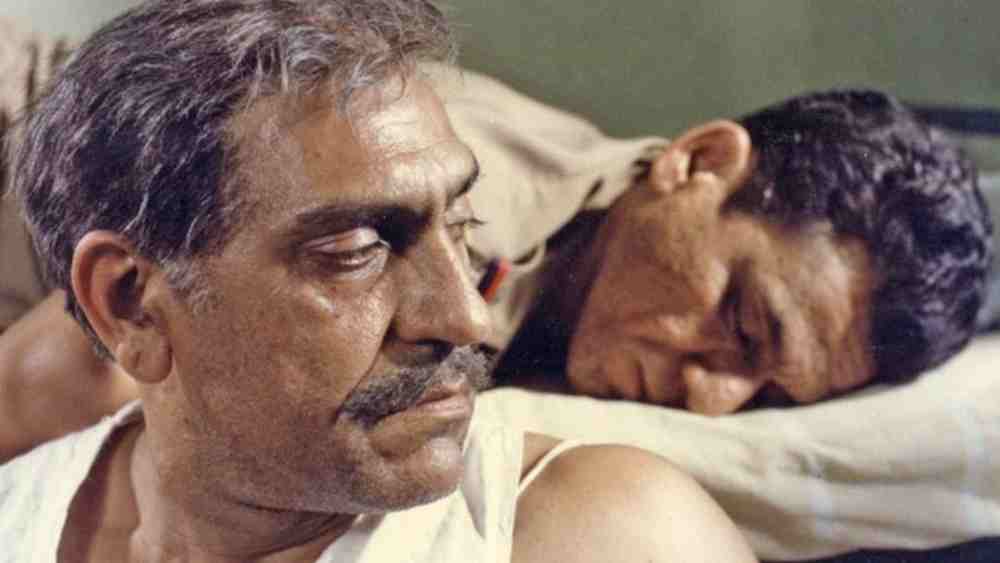
The 1980s marked a high point for parallel Hindi cinema. As mainstream films grew glitzier and more formulaic, a grittier wave of filmmaking delivered some of Hindi cinema’s most enduring works. Among the era’s sharpest social dramas was Govind Nihalani’s Ardh Satya, a searing look at institutional rot. For the film, Nihalani again collaborated with playwright Vijay Tendulkar, following their work on Aakrosh (1980). The story draws from D.A. Panvalkar’s short story Surya, grounding its narrative in lived, unvarnished truth.
3. Masaan (2015)
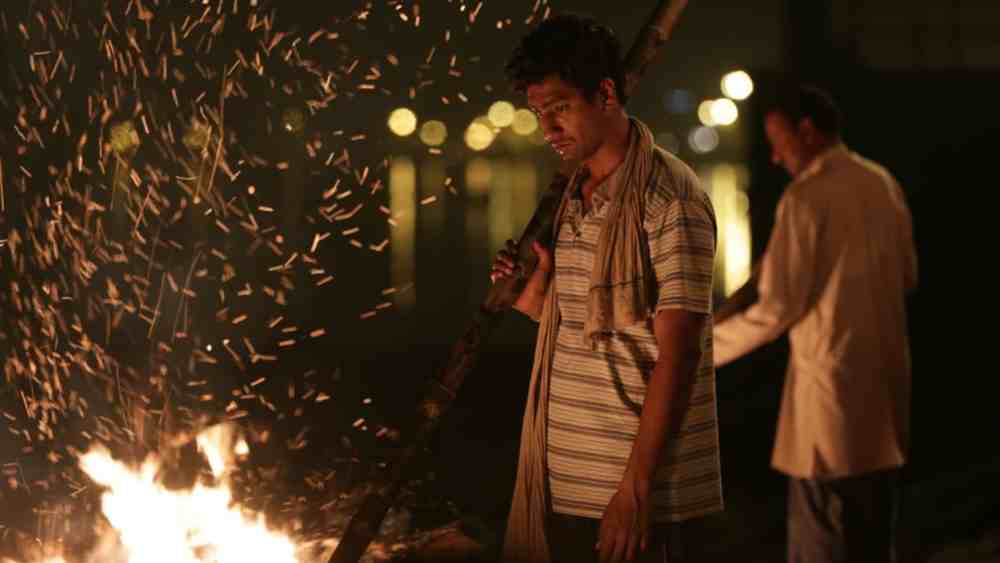
Drishyam Films
Masaan blends the cinematic and the poetic with effortless grace. Set against the backdrop of Varanasi, the film traces the lives of a few characters, all linked—at once literally and metaphorically—to the Sangam. ‘Sangam do baar aana chahiye, ek baar akele, aur ek baar kisi ke saath,’ a line from the film, captures its essence. A beautiful exploration of hope and death in dreadful simultaneity, Masaan draws you into the world of Dushyant Kumar’s poetry and leaves a lasting impression. The film was honored at Cannes with two awards.
2. Ijaazat (1987)
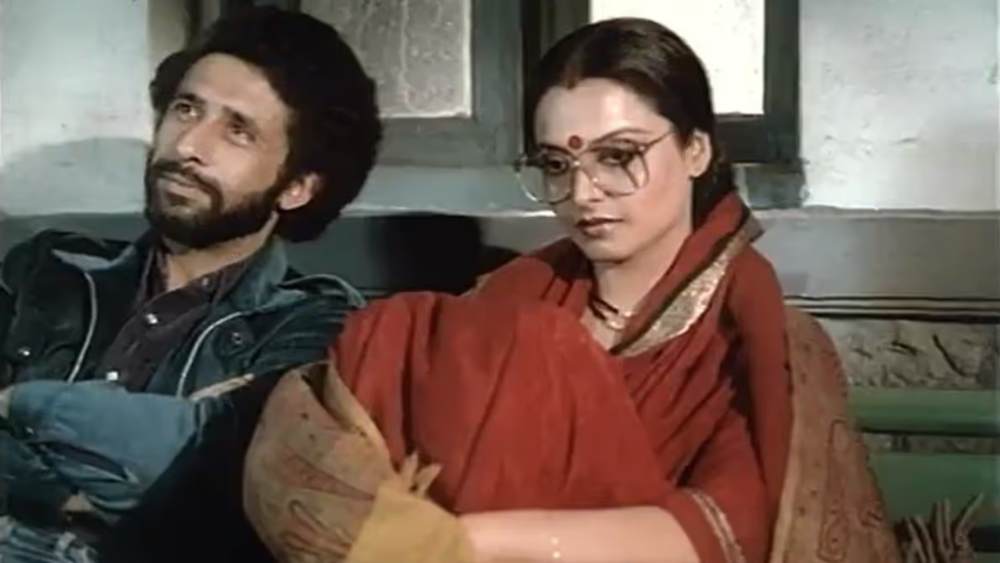
Featuring Rekha, Naseeruddin Shah and Anuradha Patel, Ijaazat beautifully explores the conflicts and complexities of human relationships. One of Gulzar’s most sensitive works, the film was much ahead of its time and has come to acquire a cult status. Drawing from Subodh Ghosh’s Bengali short story Jatugriha, Ijaazat saw Rekha deliver her career-best performance.
1. Aligarh (2015)
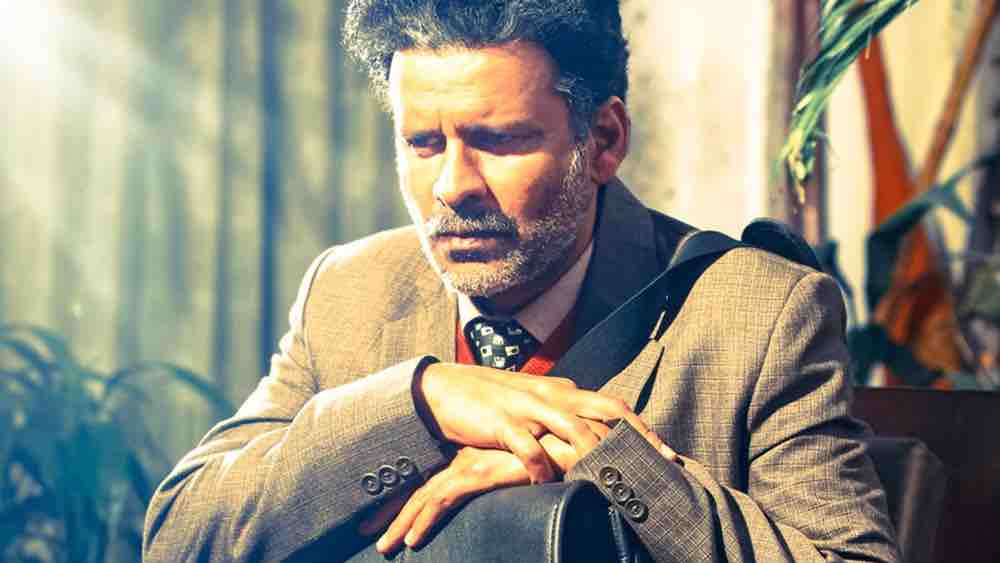
An earnest appeal to a conformist society, Aligarh asks us to choose empathy over self-righteous dogma. The film resists easy labels—Siras himself would likely reject them. Hansal Mehta’s direction is quietly poetic, layering feeling without excess. His static frames evoke the suffocation imposed by public hypocrisy, while his use of voyeuristic shots gradually turns to something more compassionate. The juxtaposition of Deepu reading Siras’ poetry with Siras’ moments of intimacy lends an understated grace to the idea of love. Aligarh lingers—less as a cry for justice than as a meditation on dignity. (Read the complete review here).
Join us on YouTube for fresh movie recommendations every week.
Conclusion
There you go! These are some of the best Hindi movies on YouTube that should be on your watchlist. These films not only show the diversity in Hindi cinema, but also of India as reflected in cinema. Many of these movies are important cultural, artistic, and historical artefacts from various different eras. If you’re done watching these, check out Manoj Bajpayee-starrer 1971, Ritesh Batra’s debut feature The Lunchbox (2013), Neeraj Pandey’s A Wednesday.
Which movies did we miss? Tell us your recommendations in the comments below.
(Additional writing by Sanghmitra Jethwani, Debapriya Maitra, Arun Kumar)

